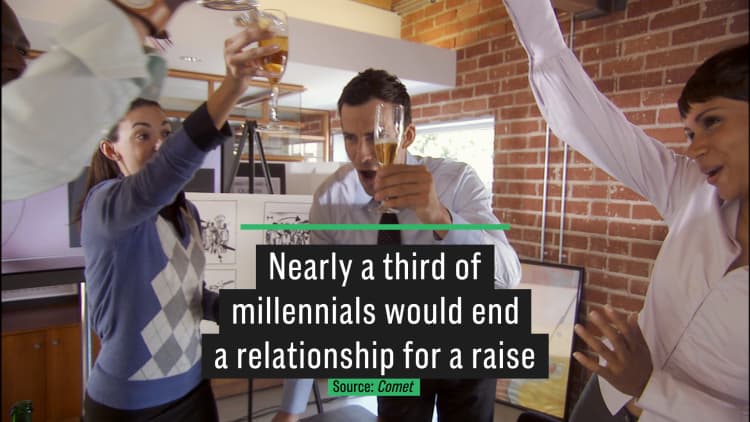Americans desperately want to earn more money. A new survey of 1,238 employed Americans from LendEDU reveals exactly what they'd be willing to give up for a 10 percent raise, and the results are striking.
About three-quarters of them say they would be willing to quit drinking for five years. More disturbingly, over a third would give up their right to vote for life and almost 10 percent would even surrender their child's right to vote for life.
Significant numbers are willing to sacrifice their leisure activities for a raise, too: Over 88 percent say they'd give up watching "Game of Thrones" for life, about 50 percent would forgo movies for the next three years and just over 50 percent would disconnect from all social media for five years.
Wanting more money isn't trivial. For many, it's closer to a necessity. The cost of living has risen dramatically in the past 50 years, outpacing inflation, and making it increasingly difficult for Americans to own their own homes and save for the future.
In 1960, the median home value in the U.S. was $11,900, which is the equivalent of around $98,000 in today's dollars, Student Loan Hero notes in a recent survey. By 2000, it rose to over $170,000, and it has only kept rising. As of April 2018, the median home value had ballooned to over $210,200, according to Zillow. Adjusting for inflation, that's a 114 percent increase since 1960.
In places like the Bay Area, the affordability issue has become so severe that residents are fleeing the state. Between July 2016 and July 2017, California saw a net loss of over 138,000 people, according to data from the Census Bureau.
For those who choose to stay, the cost of rent can be prohibitive. The median rent price in San Francisco is $4,425, according to Zillow. That's almost three times the national median of $1,600.

These factors all make it difficult to save for the future. A 2016 GOBankingRates survey found that 69 percent of Americans had less than $1,000 in total savings. Of those, 34 percent had no savings at all.
In addition to rising prices, Americans are struggling with stagnant wages. In December 2017, the annualized gain in average hourly earnings was only a "mediocre" 2.5 percent, despite "mostly solid" job growth and a 4.1 percent unemployment rate, the lowest in 17 years.
"One possible explanation is that structural factors such as unfavorable demographics and industry-specific dynamics are playing a bigger role than the cyclical factors," Joseph Song, U.S. economist at Bank of America Merrill Lynch, said in a note to clients, in an attempt to explain what he called the "mystery" of why wages haven't gone up. "However, we continue to believe that a falling unemployment rate will ultimately underpin wages."
Don't miss:
- 73% of Americans would give up drinking for this work perk
- Why you should think twice about following this common piece of investing advice
- A 36-year-old who learned to invest like Warren Buffett explains Buffett's No. 1 rule
Like this story? Like CNBC Make It on Facebook!




